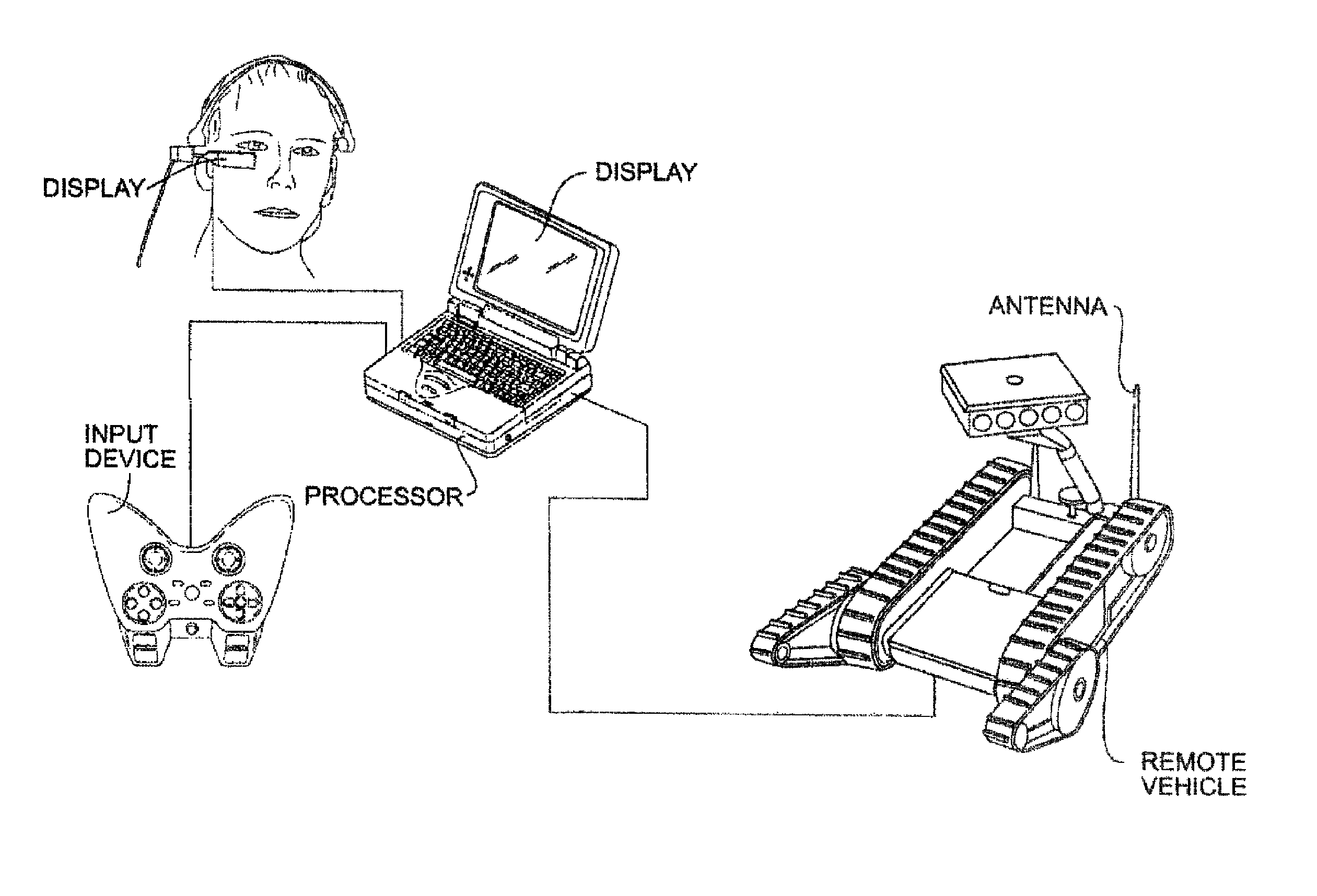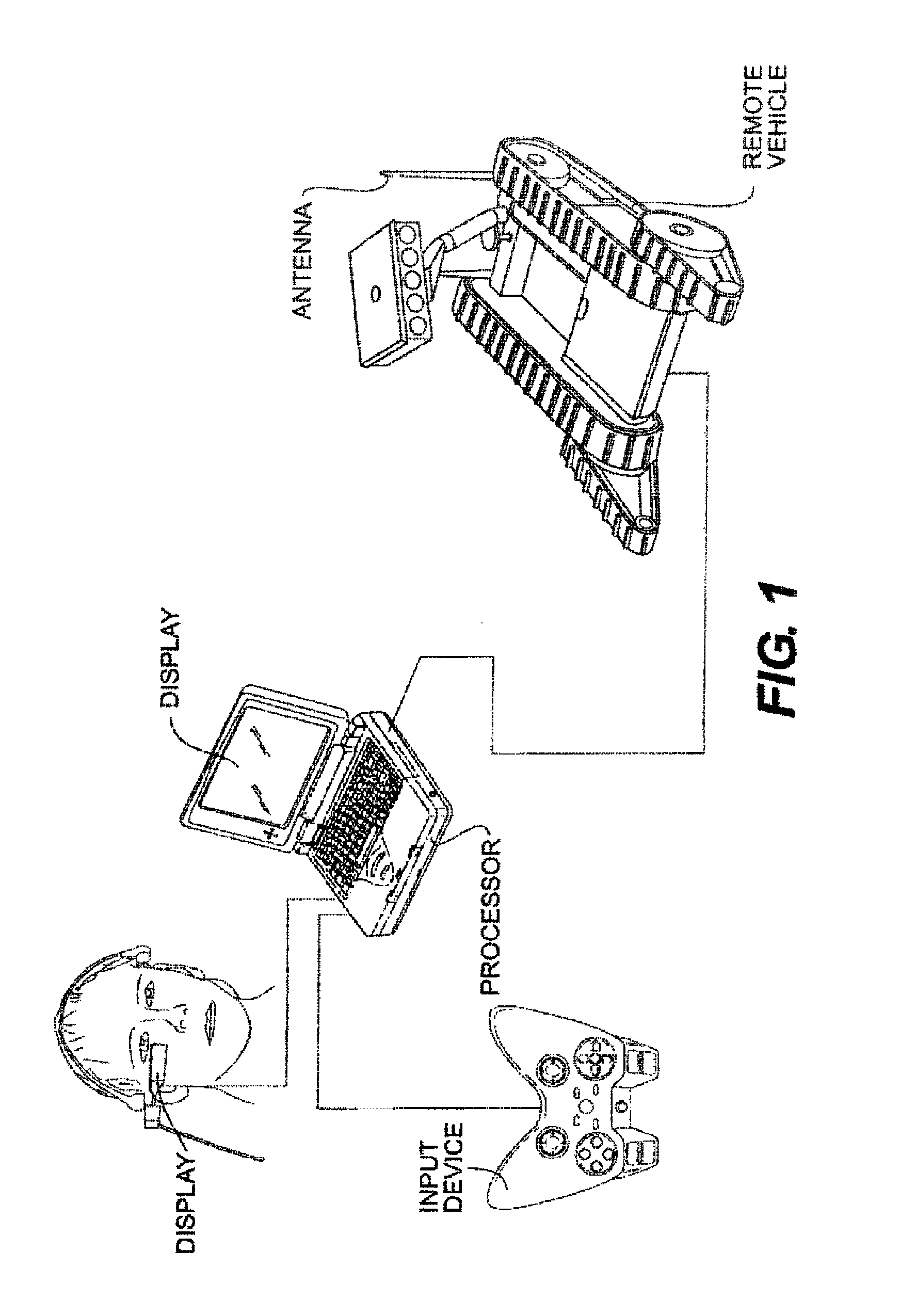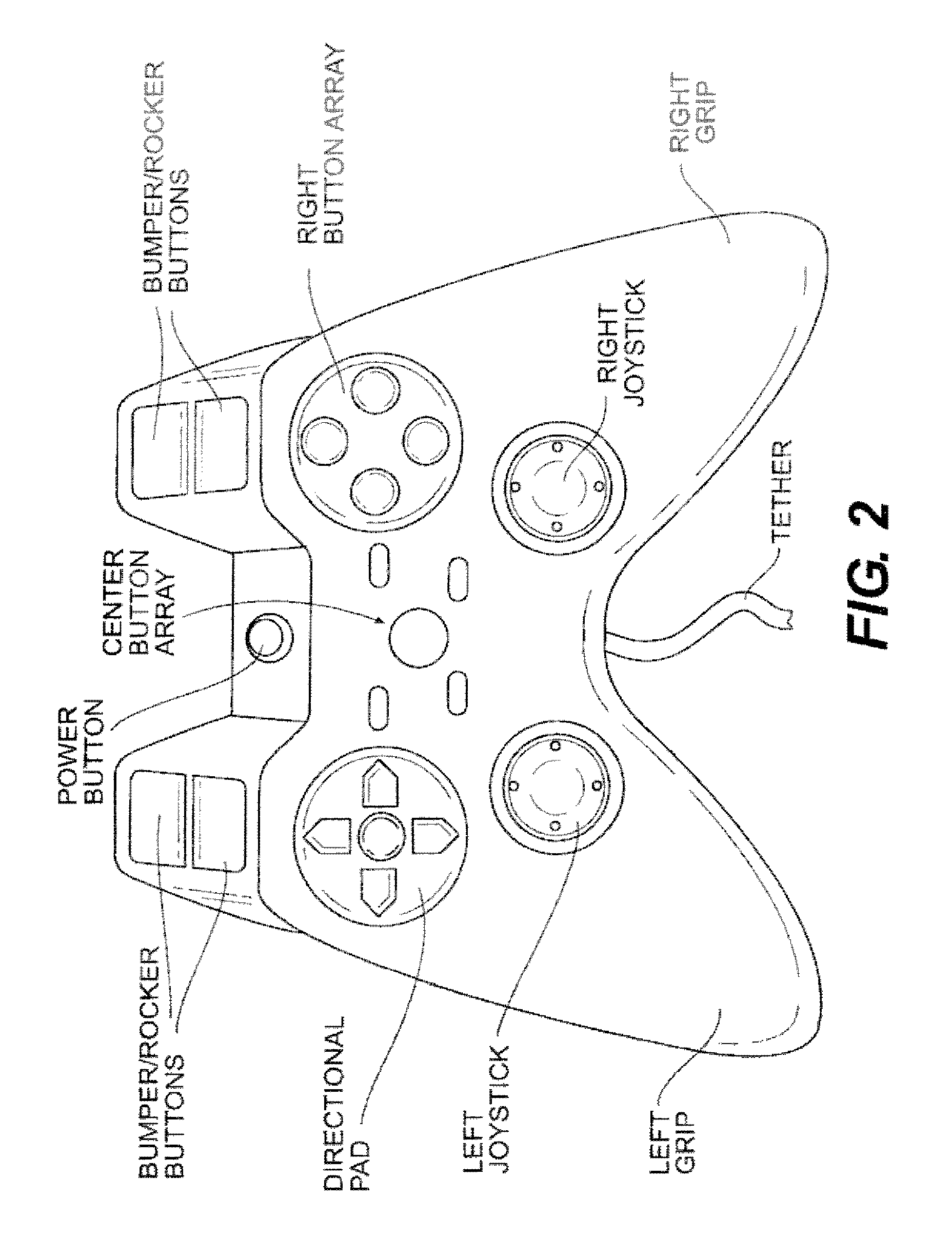Autonomous behaviors for a remote vehicle
a remote vehicle and autonomous technology, applied in the direction of navigation instruments, distance measurement, instruments, etc., can solve the problems of complex manual control of such vehicles by human operators in a tele-operation process, and achieve the effect of enhancing the operational efficiency of a remote vehicl
- Summary
- Abstract
- Description
- Claims
- Application Information
AI Technical Summary
Benefits of technology
Problems solved by technology
Method used
Image
Examples
Embodiment Construction
Operator Control Unit
[0073]FIG. 57 illustrates an embodiment of an operator control unit. This embodiment is based in part on a portable computer that includes a display screen for outputting information to the operator and a keypad and mouse for inputting information into the portable computer. Other embodiments of the operator control unit include a portable control console with a screen configured to input information representative of the area of the screen on which the user applied force. Such a version may include a touch screen display able to execute behavior and simulation routines on reception of a signal indicating that force was applied to the proper area of the display.
[0074]Further included in an embodiment of the operator control unit is a console-mounted antenna able to communicate with a corresponding receiver installed on the remote vehicle 10 via radio-frequency (RF). Other embodiments of the operator control unit may include a portable control console able to com...
PUM
 Login to View More
Login to View More Abstract
Description
Claims
Application Information
 Login to View More
Login to View More - R&D
- Intellectual Property
- Life Sciences
- Materials
- Tech Scout
- Unparalleled Data Quality
- Higher Quality Content
- 60% Fewer Hallucinations
Browse by: Latest US Patents, China's latest patents, Technical Efficacy Thesaurus, Application Domain, Technology Topic, Popular Technical Reports.
© 2025 PatSnap. All rights reserved.Legal|Privacy policy|Modern Slavery Act Transparency Statement|Sitemap|About US| Contact US: help@patsnap.com



